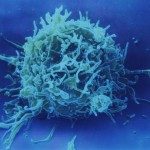Présentation
Bipolar disorders (BD) is a prevalent and debilitating chornic psychiatric illness that generates a considerable cost for the society. Beyond mood episodes, manic or depressive, growing evidence has shown that BD patients even during remission often present altered emotional reactivity (ER). ER is defined as the magnitude of change in emotion from an emotional baseline state in response to emotion-eliciting stimuli. Neuroimaging studies with BD patients have shown an abnormally decreased inhibitory prefrontal cortex activity, increased amygdala activity and a decreased connectivity between these two areas that accounts for emotional dysregulation and mood instability. These brain regions are closely connected to brain areas linked with the olfactory system (the so-called rhinencephalon). These findings suggest that the emergence of emotional dysregulation may lead to olfactory troubles. It is reinforced by the fact that by the time a particular scent is correctly identified, it has already triggered more deep-seated emotional responses. Indeed, odors not only elicit emotion, but odor perception itself shares many characteristics with emotion. However, there is a limited amount of studies investigating the potential relationship between emotion dysregulation and olfactory function. Based on a dimensional approach, which investigate single behaviour for which brain circuits are known and which can vary from normal to pathological range and thus participate to mental disorders, we will study the relationships between emotional reactivity and olfaction. By incorporating a translational perspective, this project includes a consortium made of three, complementary partners with the aim of exploring emotional dysregulation in BD, developing comprehensive animal models of emotional dysregulation, exploring the interaction between emotional dysregulation and olfaction in mice and BP, and developing new measures to detect momentary variations of mood/emotions in daily life of patients. Variations of both olfactory performance and emotional reactivity could provide additional insights into levels of arousal of olfactory processing as well as emotional dysregulation, pointing olfactory dysfunction as a potential biomarker of mood episodes. Finding biomarkers of emotional reactivity such as biological markers, or clinical signature such as olfaction will help improve management of bipolar disorders. They can be a substantial help to better define response patterns to common psychological and pharmacological treatments and to understand treatment- refractory symptoms or syndromes. A better understanding of mild level of emotional dysregulation can help improving sub-syndromal symptoms and obtain functional remission, which is a major issue for BP patients since they spend half of their life with mild symptoms that have major deleterious effects on functioning and quality of life.
This work was supported in part by French state funds managed by the ANR within the Investissements d’Avenir programme under reference ANR-11-IDEX-0004-02 (Labex Biopsy).




